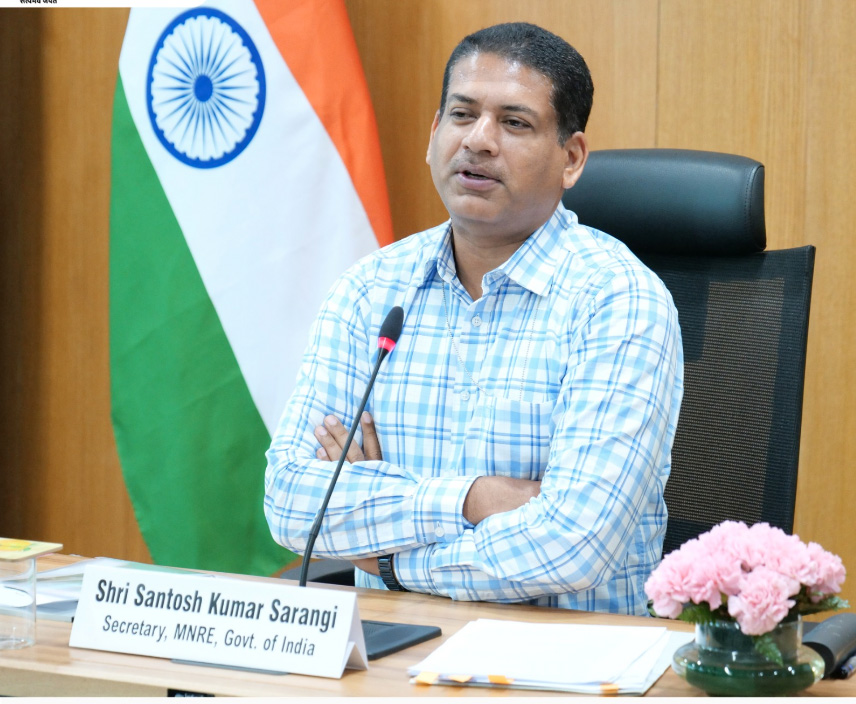New Delhi: In a significant move to accelerate India’s clean energy transition and tackle critical environmental challenges like stubble burning, the Ministry of New and Renewable Energy (MNRE), under the guidance of MNRE Secretary Santosh Sarangi, has issued revised guidelines for the Biomass Programme, part of Phase-I of the National Bioenergy Programme.
These amendments, applicable for the period FY 2021-22 to 2025-26, are designed to enhance the ease of doing business, promote cleaner energy solutions, and ultimately contribute to India’s ambitious net-zero emissions target by 2070.
The revamped framework introduces several business-friendly provisions aimed at boosting biomass technology adoption, particularly for Micro, Small, and Medium Enterprises (MSMEs). Key simplifications include a drastic reduction in paperwork and easing of approval requirements for establishing biomass projects.
A major highlight of the revised guidelines is the emphasis on technological integration. The Ministry is now enabling the use of cost-effective IoT-based monitoring solutions or quarterly data submissions, replacing the earlier requirement for expensive and high-tech systems like SCADA. This change is expected to significantly benefit smaller operators by promoting digital monitoring and accountability without incurring prohibitive costs.
Furthermore, documentation requirements have been substantially streamlined. Developers of briquette and pellet manufacturing plants are no longer burdened with numerous clearance-related documents, saving valuable time and fostering a more conducive business environment.
To enhance operational flexibility, the previous mandate for a two-year briquette or pellet sale contract has been replaced with a general sale agreement. This allows project developers greater agility to respond to market conditions, freeing them from rigid, long-term commitments.
The disbursement of Central Financial Assistance (CFA) has also been made more performance-based and transparent. Projects demonstrating efficiency above 80% will now receive full financial assistance, while those below 80% will receive aid on a pro-rata basis.
Recognizing developers’ on-ground operational challenges, the performance inspection period has been made more flexible. Inspections can now be conducted within 18 months from the date of commissioning or the date of in-principle approval, whichever is later. Additionally, Secretary MNRE holds the authority to extend this period if necessary.
The inspection process itself has been rationalized, reducing the continuous operation measurement period from 16 hours per day over three consecutive days to a more practical 10 hours, which is deemed sufficient to verify claimed and operational capacities.
In a crucial step to combat air pollution, particularly from stubble burning in northern India, the new guidelines offer biomass pellet producers in Delhi, Punjab, Haryana, and NCR districts of Rajasthan and Uttar Pradesh the flexibility to choose the most beneficial support scheme, either from MNRE or the Central Pollution Control Board (CPCB).
These comprehensive revisions are expected to facilitate the smooth implementation of the biomass programme, ensure timely financial support to commissioned plants, and encourage the establishment of more biomass-based facilities across the country.
This strategic push is poised to play a vital role in addressing crop residue burning and promoting sustainable agricultural waste management, aligning India closer to its clean energy and environmental goals.


